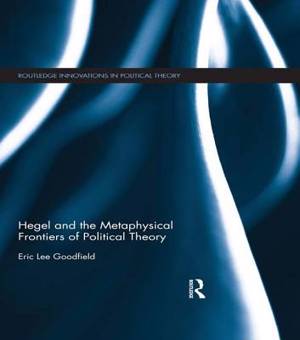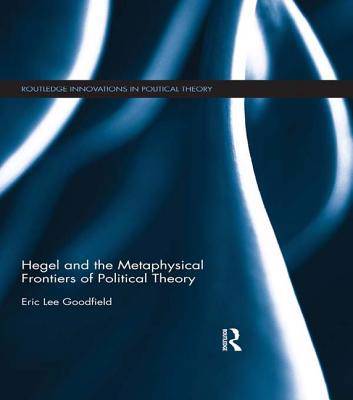
- Retrait gratuit dans votre magasin Club
- 7.000.000 titres dans notre catalogue
- Payer en toute sécurité
- Toujours un magasin près de chez vous
- Retrait gratuit dans votre magasin Club
- 7.000.0000 titres dans notre catalogue
- Payer en toute sécurité
- Toujours un magasin près de chez vous
Description
For over one hundred and fifty years G.W.F. Hegel's ghost has haunted theoretical understanding and practice. His opponents first, and later his defenders, have equally defined their programs against and with his. In this way Hegel's political thought has both situated and displaced modern political theorizing.
This book takes the reception of Hegel's political thought as a lens through which contemporary methodological and ideological prerogatives are exposed. It traces the nineteenth century origins of the positivist revolt against Hegel's legacy forward to political science's turn away from philosophical tradition in the twentieth century. The book critically reviews the subsequent revisionist trend that has eliminated his metaphysics from contemporary considerations of his political thought. It then moves to re-evaluate their relation and defend their inseparability in his major work on politics: the Philosophy of Right. Against this background, the book concludes with an argument for the inherent metaphysical dimension of political theorizing itself. Goodfield takes Hegel's reception, representation, as well as rejection in Anglo-American scholarship as a mirror in which its metaphysical presuppositions of the political are exceptionally well reflected. It is through such reflection, he argues, that we may begin to come to terms with them.
This book will be of great interest to students, scholars, and readers of political theory and philosophy, Hegel, metaphysics and the philosophy of the social sciences.
Spécifications
Parties prenantes
- Auteur(s) :
- Editeur:
Contenu
- Nombre de pages :
- 256
- Langue:
- Anglais
- Collection :
Caractéristiques
- EAN:
- 9781138649217
- Date de parution :
- 24-04-16
- Format:
- Livre broché
- Format numérique:
- Trade paperback (VS)
- Dimensions :
- 156 mm x 234 mm
- Poids :
- 381 g

Les avis
Nous publions uniquement les avis qui respectent les conditions requises. Consultez nos conditions pour les avis.






